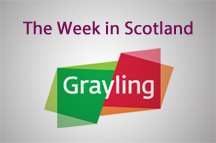.jpg) Prevarication, discussion and deliberation seem to be the order of the day at Holyrood, as the feeling of permanent political campaigning rolls on.
Prevarication, discussion and deliberation seem to be the order of the day at Holyrood, as the feeling of permanent political campaigning rolls on.
Following the conclusion of the 2011 Holyrood election, the focus was the independence referendum campaign, and then the 2015 General Election and now the tell-tale signs of another period of electioneering are ramping up. We also have the local authority elections of 2017 to look forward to! The difficulty of these periods (as colleagues are aware) is that the wheels of Government and Parliament grind slowly and politicians have one thing to focus on - winning their patch. It also delays big (and potentially unpopular) decisions and this has become more evident this week.
Key Government policy decisions are being squashed and pushed up to Christmas and beyond. “Engagement to take forward the Government’s ambitious programme for Scotland” remain just that - engagement rather than action. The troubled planning system which has stymied house-building is to come under review and will conclude in spring 2016, too late for the Government to take action before May. The Commission on Local Tax Reform is divided and is now to present a varied smorgasbord of options - none of which will come to fruition until after May. Regulation of energy efficiency in the private sector has been kicked into the long grass and the moratorium on unconventional gas remains so. Willie Rennie made this point at this week’s FMQs in relation to GP recruitment. This is not to mention decisions based on the powers delivered through the Scotland Act 2012 and the Scotland Bill to come. Policy deliberations take time, but firm political positions on income tax, a raft of welfare policies, the use of VAT accrued funds, Crown-Estate assets, consumer advocacy amongst others, are yet to be created.

The reason for obfuscation and delay are three-fold. The SNP Government is wary of taking decisions that could unsettle the foundations of their sustained high popularity, they are not keen to promote newly devolved powers to maintain their focus for independence and parties are holding back their policy fireworks for the election campaign. However, the party conferences and Scottish budget offers junctures before the election campaigns to flush out positions. Not least a potential vote on Trident renewal at the Scottish Labour conference and on the moratorium on unconventional gas extraction at the SNP conference.
Committee Reform

As well as not inviting submissions from outside the Parliament, with very few written responses received from MSPs, the lack of democratic legitimacy will hamper the Committee’s exercise.
Joe Pike’s Book - Project Fear
If you are lucky enough to get your grubby paws on one, Holyrood politicos and chatterati have been reading and rattling through one thing this week - Joe Pike’s behind-the-scenes account of the Better Together campaign. Drawing upon one-to-one interviews with some of the main proponents, the largely confidential sources, give some very honest descriptions.
The description of former MP, Frank Roy’s ‘arachnid-like’ approach is this reader’s favourite: “He sits in a corner like a spider at the centre of his web and watches. When he’s angry, he goes quiet and eats bars of Galaxy chocolate”. If that doesn’t pique your interest, the masterful Stephen Daisley has his review here.














